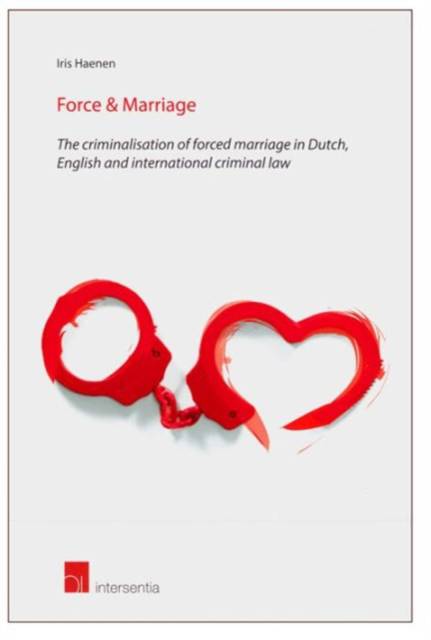
En raison d'une grêve chez bpost, votre commande pourrait être retardée. Vous avez besoin d’un livre rapidement ? Nos magasins vous accueillent à bras ouverts !
- Retrait gratuit dans votre magasin Club
- 7.000.000 titres dans notre catalogue
- Payer en toute sécurité
- Toujours un magasin près de chez vous
En raison de la grêve chez bpost, votre commande pourrait être retardée. Vous avez besoin d’un livre rapidement ? Nos magasins vous accueillent à bras ouverts !
- Retrait gratuit dans votre magasin Club
- 7.000.0000 titres dans notre catalogue
- Payer en toute sécurité
- Toujours un magasin près de chez vous
Force & Marriage
The Criminalisation of Forced Marriage in Dutch, English and International Criminal Law
Iris Haenen
Livre broché | Anglais
99,45 €
+ 198 points
Description
Forced marriages take place all over the world, both in times of peace and in times of conflict. Media attention and judicial scrutiny have helped place this practice in the legal and political limelight, requiring national governments and the international community alike to develop strategies to deal with this human rights violation. On the level of national law, several countries have introduced a specific offense of forced marriage in their criminal laws. On the level of international law, courts and tribunals have deliberated on how to legally classify this practice and are faced with the question of whether or not forced marriage should be seen as a 'new' crime against humanity. This book provides a comparative perspective on the criminalization of forced marriage, focusing on the question of whether - and, if so, how - the practice of forced marriage should be criminalized under both Dutch and international law. After offering a thorough description of the phenomenon of forced marriage in and outside of conflict situations, a synthesized doctrinal foundation for criminalization on the national and international level is presented. Next, the book delves into international case law and criminal law concerning the act of forced marriage. It goes on to provide a comprehensive overview of and comparison between Dutch and English criminal law and civil law. It then discusses whether forced marriage should be criminalized in Dutch law and whether it should be added to the Rome Statute of the International Criminal Court as a distinct crime against humanity, war crime, or act of genocide. [Subject: Criminal Law, Human Rights Law, International Law, Dutch Law, Civil Law, Comparative Law]
Spécifications
Parties prenantes
- Auteur(s) :
- Editeur:
Contenu
- Nombre de pages :
- 404
- Langue:
- Anglais
Caractéristiques
- EAN:
- 9781780682525
- Date de parution :
- 25-06-14
- Format:
- Livre broché
- Format numérique:
- Trade paperback (VS)
- Dimensions :
- 160 mm x 240 mm
- Poids :
- 666 g

Les avis
Nous publions uniquement les avis qui respectent les conditions requises. Consultez nos conditions pour les avis.






